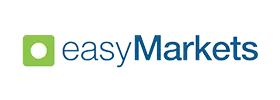Germany is a central hub for financial activities in Europe, with an established and thriving Forex trading market. Forex brokers operating in Germany benefit from a robust regulatory environment and the trust associated with the country’s strict financial standards. For both new and experienced traders, understanding the legal framework and trading conditions in Germany is critical for success. This guide explores every aspect of Forex trading in Germany to provide valuable insights for anyone considering entering this lucrative market.
Below you can find a list with the best Forex brokers regulated in Germany:
Top 9 Forex Brokers in Germany
-
Fusion Markets
- Australia regulated broker
- MT4, MT5, TradingView, Ctrader
- Leverage up to 500
Trading InstrumentsDeposit Methods- Commodities CFDs
- Crypto CFDs
- Forex CFDs
- Indices CFDs
- Metals CFDs
- Stock CFDs
-
FP Markets
- Australia and CySEC regulated broker
- MT4/MT5, TradingView, Ctrader, Iress
- EUR/USD spread from 0.0 pips
Trading InstrumentsDeposit Methods- Commodities CFDs
- Crypto CFDs
- Energy CFDs
- Forex CFDs
- Indices CFDs
- Metals CFDs
- Stock CFDs
-
ActivTrades
- Winner of 20+ Global Awards
- MT4/MT5, TradingView
- Leverage up to 1:400
Trading InstrumentsDeposit Methods- Bonds CFDs
- Commodities CFDs
- Crypto CFDs
- ETF CFDs
- Forex CFDs
- Indices CFDs
- Share CFDs
-
Axi
- Raw spreads start from 0.0 pips
- Offers order execution faster than standard ECN model
- Axi Select Funded Trader Program offers funding up to $1 million
Trading InstrumentsDeposit Methods- Commodities CFDs
- Crypto CFDs
- Forex CFDs
- Indices CFDs
- Metals CFDs
- Stock CFDs
-
IG
- Offers different account types, including DMA (Direct Market Access) one
- Offers turbo warrants on forex pairs, commodities, indices, and equities
- Supports popular platforms like MT4 and TradingView as well as ProRealTime, L2, and more
Trading InstrumentsDeposit Methods- Bond Futures
- Bond Options
- Bond Spread Betting
- Bonds CFDs
- Commodities CFDs
- Commodity Futures
- Commodity Options
- Commodity Spread Betting
- Crypto CFDs
- Crypto Options
- Crypto Spread Betting
- Currency Futures
- Energy CFDs
- Energy Futures
- Energy Options
- Energy Spread Betting
- ETF CFDs
- ETF Options
- ETF Spread Betting
- Forex CFDs
- Forex Options
- Forex Spread Betting
- Index Futures
- Index Options
- Index Spread Betting
- Indices CFDs
- Interest Rate Futures
- Metal Futures
- Metal Options
- Metals CFDs
- Metals Spread Betting
- Share CFDs
- Stock CFDs
- Stock Options
- Stock Spread Betting
- US Stock CFDs
- US Stock Options
- US Stock Spread Betting
-
Pepperstone
- Australia and CySEC regulated broker
- MT4/MT5, TradingView, Ctrader, Iress
- EUR/USD spread from 0.0 pips
Trading InstrumentsDeposit Methods- Commodities CFDs
- Crypto CFDs
- Energy CFDs
- Forex CFDs
- Indices CFDs
- Metals CFDs
- Stock CFDs
-
XM Group
- XM provides great trading experiences using MetaTrader 4 and MetaTrader 5, which are improved by personalized features.
- Zero commission accounts are available
- Top-tier regulation from CySEC, ASIC, FSC, and DFSA oversee XM's operations, assuring transparency and client safety.
Trading InstrumentsDeposit Methods- Bonds CFDs
- Commodities CFDs
- Crypto CFDs
- Energy CFDs
- ETF CFDs
- Forex CFDs
- Forex Options
- Index Options
- Indices CFDs
- Metals CFDs
- Share CFDs
- Stock CFDs
- Stock Options
- US Stock Options
-
BlackBull Markets
- Broker boasting lightning-fast execution speed
- ECN brokers with tight spreads from 0.0 pips
- $0 minimum deposit requirement
Trading InstrumentsDeposit Methods- Commodities CFDs
- Crypto CFDs
- Forex CFDs
- Indices CFDs
- Metals CFDs
- Stock CFDs
-
easyMarkets
- Innovative tools like to manage risk effectively.
- EasyMarkets provides access to Forex, Indices and Stocks
- Proprietary EasyMarkets platform available, as well as MetaTrader 4 (MT4), to suit both beginner and experienced traders.
Trading InstrumentsDeposit Methods- Commodities CFDs
- Crypto CFDs
- Forex CFDs
- Forex Forwards
- Forex Options
- Indices CFDs
- Metal Options
- Metals CFDs
- Share CFDs
Brokers Compared by Spread
| Brand | Commission per lot | |
|---|---|---|
| Fusion Markets | AVG 0.93 pips | $0 Classic Account, $4.50 round turn on Zero Account |
| FP Markets | AVG 1.2 pips | $0 Standard Account; $6 round turn on Pro Account |
| ActivTrades | AVG 0.5 pips | $0 |
| Axi | AVG 1.2 pips | $0 on Standard Account; $7 round trip on Pro Account |
| IG | MIN 0.6 pips | $0 |
| Pepperstone | AVG 1.1 pips | $0 (Standard Account), $7 round-turn (Razor Account, TradingView, MT4, MT5), $6 round-turn (Razor Account, cTrader) |
| XM Group | AVG 1.2 pips | $0 Ultra Low Micro and Ultra Low Standard Accounts; $3.50 per side XM Zero Account |
| BlackBull Markets | AVG 1 pips | $0 (ECN Standard Account), $6 round turn (ECN Prime Account), $4 round turn (ECN Institutional Account) |
| easyMarkets | AVG 0.7 pips | $0 |
FX Brokers Deposit Method Comparison
| Brand | Minimum deposit | |
|---|---|---|
| Fusion Markets | $0 | |
| FP Markets | $50 (AU$100) | |
| ActivTrades | $0 | |
| Axi | $0 | |
| IG | $50 | |
| Pepperstone | $0 | |
| XM Group | $5 | |
| BlackBull Markets | $0 (Standard)$2,000 (Prime)$20,000 (Institutional) | |
| easyMarkets | $25 ($2,000 for MT4 Premium, $10,000 for MT4 VIP) |
Brokers by Regulator
| Brand | Maximum leverage | |
|---|---|---|
| Fusion Markets | 1:500 (ASIC | Pro Account), 1:30 (ASIC | Retail Account), 1:500 (VFSC | Retail Account) | |
| FP Markets | 1:500 (CySEC | Pro Account), 1:30 (ASIC | Retail Account), 1:30 (CySEC | Retail Account), 1:500 (FSAS | Retail Account) | |
| ActivTrades | 1:400 (CMVM | Pro Account), 1:30 (CMVM | Retail Account), 1:1000 (FSC), 1:200 (SCB) | |
| Axi | 1:500 (Elite Account), 1:400 (Pro Account), 1:30 (ASIC | Retail Account), 1:30 (CySEC | Retail Account), 1:30 (DFSA | Retail Account), 1:30 (FCA | Retail Account), 1:500 (SVGFSA) | |
| IG | 1:222 (BaFin | Pro Account), 1:30 (ASIC | Retail Account), 1:30 (BaFin | Retail Account), 1:200 (BMA | Retail Account), 1:30 (FCA | Retail Account) | |
| Pepperstone | 1:500 (CySEC | Pro Account), 1:500 (SCB | Pro Account), 1:30 (ASIC | Retail Account), 1:30 (CySEC | Retail Account), 1:30 (DFSA | Retail Account), 1:30 (FCA | Retail Account), 1:200 (SCB | Retail Account) | |
| XM Group | 1:30 (CySEC | Retail Account), 1:1000 (IFSC | Retail Account) | |
| BlackBull Markets | 1:500 (FMA), 1:500 (FSAS) | |
| easyMarkets | 1:500 (ASIC | Pro Account), 1:500 (CySEC | Pro Account), 1:30 (ASIC | Retail Account), 1:30 (CySEC | Retail Account), 1:2000 (FSAS | Retail Account) |
Forex Brokers Platform Availability
| Brand | FX pairs to trade | |
|---|---|---|
| Fusion Markets | cTrader, MetaTrader 4, MetaTrader 5, TradingView | |
| FP Markets | cTrader, TradingView | |
| ActivTrades | MetaTrader 4, MetaTrader 5, Proprietary Web, TradingView | |
| Axi | MetaTrader 4 | |
| IG | MetaTrader 4, Proprietary Web, TradingView | |
| Pepperstone | MetaTrader 4, MetaTrader 5, Proprietary Mobile, Proprietary Web | |
| XM Group | MetaTrader 4, MetaTrader 4 MultiTerminal, MetaTrader 5, Proprietary Mobile, Proprietary Web | |
| BlackBull Markets | cTrader, MetaTrader 4, MetaTrader 5, TradingView | |
| easyMarkets | MetaTrader 4, MetaTrader 5, Proprietary Mobile, Proprietary Web, TradingView |
Comprehensive Comparison the Best German Forex Brokers
Legal Forms of Forex Trading in Germany
Forex trading in Germany encompasses several legal forms of trading, each catering to different trading preferences and strategies. Below are the primary forms of Forex trading permitted in Germany:
-
Spot Trading
Spot trading involves the buying and selling of currency pairs at current market prices. It is popular due to its simplicity and instant execution. Traders can profit from immediate price movements with high liquidity.
-
Contracts for Difference (CFDs)
CFDs allow traders to speculate on currency pair price movements without owning the underlying asset. This instrument provides flexibility to go long (buy) or short (sell) and enables the use of leverage for magnified exposure.
-
Spread Betting
Although not commonly associated with Germany, spread betting is available for currency pairs in specific cases. Traders place bets on the price direction, with profits based on the difference between the opening and closing levels.
-
Futures Contracts
Forex futures involve agreeing to buy or sell a currency pair at a predetermined price on a set date. This is more commonly used by institutional traders or corporations to hedge against market fluctuations.
-
Options Trading
Currency options grant traders the right (but not the obligation) to buy or sell a currency pair at a specified price within a set period. This instrument is often used for risk management or speculative purposes.
-
Forwards Contracts
These are customized agreements between two parties to trade currencies at a specific rate on a future date. Forward contracts are typically used by businesses to mitigate foreign exchange risk.
Each form of trading comes with distinct risks and advantages. Understanding these will help traders determine the most suitable method based on their financial goals.
Restrictions on Currency Trading in Germany
Although Forex trading is widely accessible in Germany, there are some restrictions to ensure consumer protection and market integrity:
-
CFDs Involving Cryptocurrency Crosses:
BaFin places significant restrictions on CFDs involving fiat-to-cryptocurrency pairs. These instruments are considered high-risk due to their volatility and speculative nature. Regulatory measures aim to protect retail investors from substantial losses.
-
Binary Options:
Binary options are banned for retail traders in Germany. These high-risk instruments often resemble gambling due to their all-or-nothing payout structure. BaFin’s ban aligns with the European Securities and Markets Authority’s (ESMA) directive.
-
Leverage Restrictions:
Leveraged Forex trading is subject to strict caps, particularly for retail clients. This is intended to prevent excessive risk exposure and significant financial losses.
BaFin’s stringent measures prioritize trader safety and market fairness. These restrictions highlight the importance of trading with fully compliant brokers.
Who Regulates Forex Trading in Germany?
Forex trading in Germany is primarily regulated by the Federal Financial Supervisory Authority (BaFin). BaFin is responsible for overseeing all financial activities in the country, including Forex trading, ensuring compliance with European regulations and enforcing strict rules to protect traders.
Key functions of BaFin include:
-
Issuance of Licenses:
Brokers must obtain a BaFin license to legally offer their services in Germany. This licensing process is thorough and demands that brokers demonstrate a high level of financial stability, operational transparency, and adherence to strict compliance protocols. A BaFin license is not just a regulatory requirement; it is also a hallmark of credibility and trustworthiness, reassuring traders that the broker operates under stringent oversight.
-
Monitoring Financial Activities:
The authority ensures that brokers adhere to both legal and ethical standards in their operations. This includes overseeing trading conditions, ensuring the proper segregation of client funds, and scrutinizing advertising practices to prevent misleading claims. BaFin’s continuous monitoring helps create a level playing field for traders and ensures that brokers maintain transparency in their dealings.
-
Implementing ESMA (European Securities and Markets Authority) Guidelines:
As Germany is part of the European Union, its financial market regulations align with ESMA’s rules. These include critical measures such as leverage restrictions, negative balance protection, and the inclusion of mandatory risk disclaimers in promotional materials. These guidelines aim to safeguard retail traders by limiting excessive risk exposure, ensuring they are well-informed, and preventing financial loss beyond their deposited funds.
By choosing a Forex broker licensed by BaFin, traders benefit from a secure, transparent, and well-regulated trading environment. A BaFin-regulated broker not only complies with Germany’s national standards but also adheres to broader EU financial directives, offering clients a dual layer of protection. This regulatory framework fosters trust, reduces risks, and ensures a more equitable trading experience for both retail and institutional traders.
Requirements for Forex Brokers in Germany
Forex brokers serving clients in Germany must adhere to a set of strict regulatory requirements enforced by BaFin. These measures ensure transparency, security, and fairness in the Forex trading space:
- Negative Balance Protection:
One of the most critical regulations is negative balance protection. This safeguard ensures that traders cannot lose more money than they have deposited into their trading accounts. This rule is particularly crucial for leveraged trading, where rapid market movements can lead to significant losses. By capping losses to the amount deposited, brokers protect clients from falling into debt due to unforeseen market volatility.
- Investor Compensation Scheme:
Another essential requirement is participation in an investor compensation scheme. Brokers are obligated to be part of a fund that compensates clients in the event of broker insolvency. This measure provides a safety net for traders, guaranteeing a portion of their deposited funds even if the broker faces financial difficulties. Such protections build trust and confidence in the broker-client relationship.
- Retail Leverage Restrictions:
Retail leverage restrictions are also a cornerstone of BaFin’s regulatory framework. Leverage for retail clients is capped at 1:30 for major currency pairs and lower ratios for minor and exotic pairs. This limitation is designed to shield retail traders from excessive risk exposure and the potential for substantial losses in highly volatile markets. While leverage can amplify profits, it equally magnifies losses, and these restrictions encourage responsible trading practices.
- Fund Segregation:
To further enhance security, brokers must implement fund segregation policies. Client funds are required to be held in segregated accounts, completely separate from the broker’s operational funds. This ensures that traders’ money cannot be used for the broker’s business activities or misappropriated. In the event of financial difficulties or insolvency, segregated funds remain protected and accessible to clients.
- Automatic Margin Closeouts:
If a trader’s margin level falls below a predetermined threshold, the broker is obligated to close out positions automatically. This prevents traders from incurring losses beyond their available margin and helps mitigate the risks of volatile market conditions.
- Risk Disclaimers:
Risk disclaimers are mandatory in all promotional and marketing materials. Brokers must prominently display clear and unambiguous warnings about the risks associated with Forex trading. These disclaimers aim to ensure that clients are fully informed about the potential downsides of trading, promoting transparency and responsible decision-making.
By complying with these requirements, brokers demonstrate their commitment to protecting clients and maintaining a transparent trading environment.
Are There Taxes on Profits from Forex Trading in Germany?
Forex trading profits in Germany are subject to taxation under the country’s comprehensive tax framework. Below are key points regarding tax obligations:
- Capital Gains Tax (Kapitalertragsteuer):
Forex trading profits are typically classified as capital gains. The standard rate is 25%, plus a solidarity surcharge (5.5% of the tax) and church tax (if applicable).
- Offsetting Losses:
Traders can offset losses against profits to reduce their taxable income. This provision helps mitigate the impact of losing trades.
- Filing Requirements:
Traders must declare their trading profits in their annual income tax returns. Proper documentation of all trades and profits is essential for compliance.
It is crucial for traders to stay informed about tax regulations and seek professional guidance to ensure compliance and minimize liabilities.
How to Identify Reliable Forex Brokers Accepting German Clients
Selecting a reliable Forex broker is vital to ensuring a safe and profitable trading experience. Here are key factors to look for:
- BaFin License: Verify the broker’s regulatory status by checking BaFin’s official registry. A licensed broker adheres to strict rules that prioritize trader protection.
- Transparent Pricing: Look for brokers that offer clear and upfront information on spreads, commissions, and fees. Hidden costs can erode profits over time.
- Quality of Trading Platforms: A reliable broker provides access to advanced trading platforms like MetaTrader 4 or 5. These platforms should offer robust tools for analysis and execution.
- Customer Support: Responsive and knowledgeable support is essential, especially for resolving deposit or platform-related issues. Check availability in German and other relevant languages.
- Reputation: Research reviews and testimonials from other traders. A broker’s track record can provide insights into their reliability and quality of service.
By considering these factors, traders can make informed decisions and partner with trustworthy brokers.
FAQ
Can I Trade Forex in Germany Without a BaFin-Regulated Broker?
While possible, trading with non-BaFin brokers carries significant risks, including lack of legal protection and regulatory oversight.
Are Forex Brokers in Germany Suitable for Beginners?
Yes, many brokers offer educational resources, demo accounts, and user-friendly platforms tailored to new traders.
What Is the Minimum Deposit Required for Forex Trading in Germany?
Minimum deposit requirements vary by broker. Many reputable brokers offer low deposit thresholds to cater to retail clients.
Is Forex Trading Profitable in Germany?
Profitability depends on factors such as trading strategy, market conditions, and risk management. Education and experience play a key role.
Do I Need to Report Forex Losses for Tax Purposes?
Yes, losses should be reported to offset gains and reduce overall tax liability.
Conclusion
Forex trading in Germany offers numerous opportunities for traders, supported by stringent regulations and robust financial systems. By partnering with a BaFin-regulated broker, traders gain access to a secure and transparent environment, enabling them to navigate the Forex market with confidence. Whether you are a novice or an experienced trader, understanding the regulatory framework, tax obligations, and key broker selection criteria will empower you to make informed decisions and achieve success in Forex trading.
Why You Should Trust RationalFX
When it comes to making informed decisions about forex brokers, it's essential to rely on trustworthy sources. RationalFX, a company with over 20 years of experience since its founding in 2005, has established itself as a credible authority in the industry. With an impressive collection of over 2500 reviews on Trustpilot, boasting a score of 4.2, it's clear that Rational FX has built a reputation for providing reliable and unbiased information.
What sets Rational FX apart is its rigorous evaluation process, which considers over 30 different criteria when selecting forex brokers. This comprehensive approach ensures that every aspect of a broker's service is taken in consideration, including regulation, forex spreads, trading platforms, deposit methods, and reputation. With its wealth of experience, transparent review process, and outstanding customer feedback, Rational FX is a trusted source for anyone seeking reliable information on forex brokers. You can reach us via e-mail at feedback@rationalfx.com or contact us through our social media accounts here: Facebook, YouTube, or leave a feedback here.













